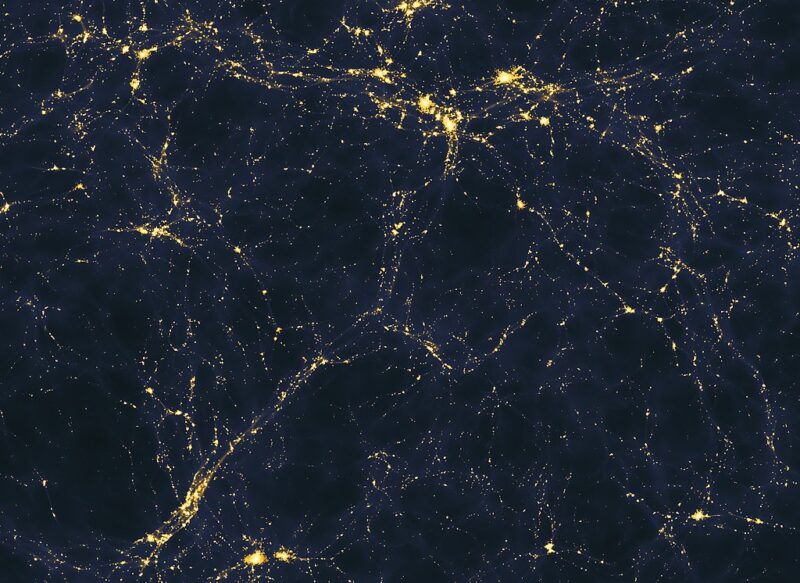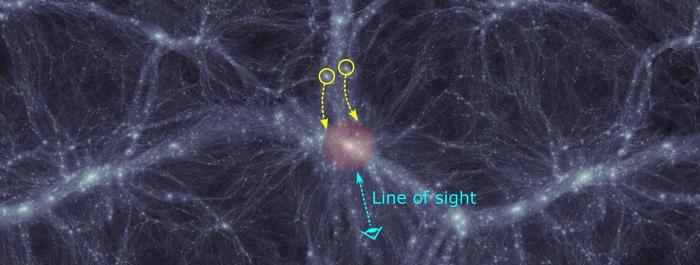
Universe younger than predictions?
The standard model of cosmology – which incorporates Big Bang theory – is the leading theory explaining how our universe came to be. But some would say we’re now having a crisis in cosmology. And now here’s one more piece of evidence that casts a deeply puzzling light upon the standard model. On January 22, 2024, the Chinese Academy of Sciences said its researchers have measured the motions of satellite galaxies around a massive galaxy group. The scientists’ findings suggest that the universe is younger than the standard model predicts.
The scientists published their peer-reviewed research in the journal Nature Astronomy on January 22, 2024.
The standard model of cosmology
The standard model of cosmology says that the universe began with a bang, followed by the formation of small structures. Those structures then merged into larger structures. Eventually, massive galaxy clusters formed web-like structures, like you can see in the simulation above.
As the universe ages, the large structures show less activity. Observing the motions of smaller satellite galaxies around the larger galaxy groups provides astronomers with useful insight. By modeling the motions of these satellite galaxies, they can infer how the structures formed and glean their ages.
And what they found was that the computer models and actual observations of the universe don’t match.

Satellite galaxy pairs
Scientists from the Chinese Academy of Sciences used the Sloan Digital Sky Survey (SDSS) to track the motions of satellite pairs around massive groups of galaxies. They looked at satellites pairs that were on the opposite side of the massive galaxy groups from our line of sight. The researchers analyzed the satellites’ velocity offsets from the central galaxy group. What they found was an excess of satellite pairs showing:
correlated velocity offsets compared to pairs displaying anti-correlated velocity offsets.
Team leader Qi Guo of the Chinese Academy of Sciences said:
The excess of correlated satellite pairs suggests the presence of recently accreted or infalling satellite galaxies.
The keyword here is recently. New computer simulations also showed this excess. But real-life observations did not show the same magnitude of excess. The discrepancy between the simulations and the observations indicates that massive galaxy groups are younger in the real universe. Author Qing Gu said:
Since the age of the massive galaxy groups could be closely related to the age of the universe, these findings consequently suggest a younger universe …
The study shows, once again, that the standard model of cosmology is still a work in progress.
Bottom line: A new study analyzed the motions of satellite galaxy pairs around a large galaxy group. The results showed the universe may be younger than the standard model of cosmology predicts.
Via Chinese Academy of Sciences
Read more: The universe is expanding faster than theory predicts











